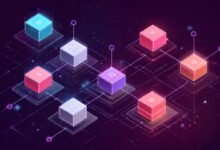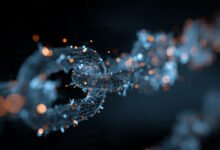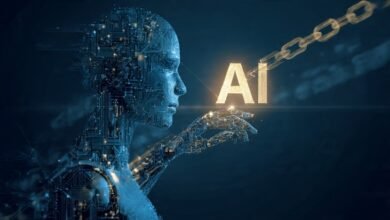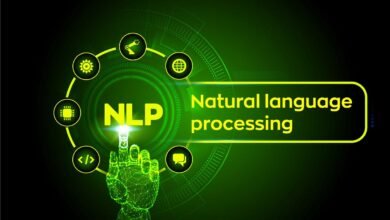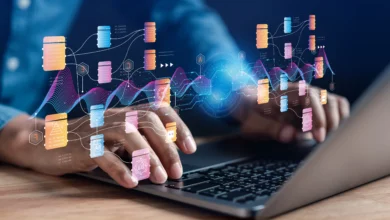From Crypto to Cognition: AI and Blockchain in Action
Discover how AI and blockchain integration transforms cryptocurrency, smart contracts, and cognitive computing. Explore decentralized AI networks, machine learning applications, and the future of blockchain technology.
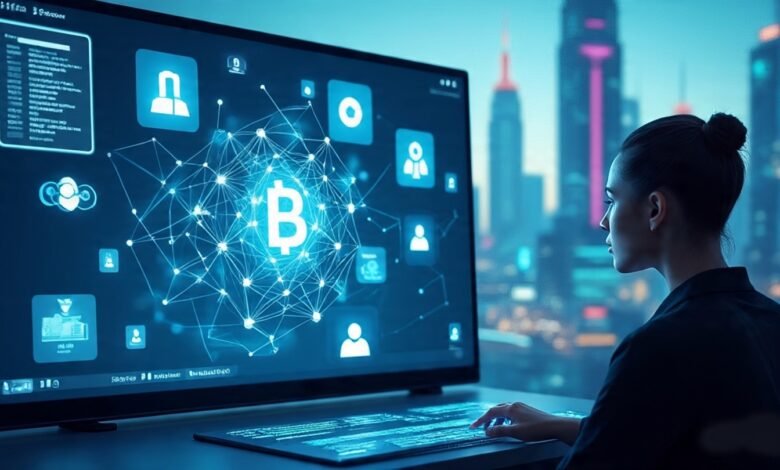
The digital landscape is witnessing an unprecedented transformation as artificial intelligence and blockchain converge to create innovative solutions across multiple industries. This powerful combination of cognitive computing and distributed ledger technology is reshaping how we perceive data security, financial transactions, and automated decision-making processes. While blockchain-based cryptocurrencies eliminate currency barriers and foster international trading, AI improves operational efficiency, ensures higher security, and reduces associated costs.
The integration of AI blockchain technology represents more than a technological trend—it’s a paradigm shift that’s democratizing access to intelligent systems while maintaining the transparency and security inherent in blockchain networks. Blockchain’s digital record offers insight into the framework behind AI and the provenance of the data it uses, addressing the challenge of explainable AI. This symbiotic relationship enhances trust in data integrity and AI recommendations, creating new opportunities for businesses and developers worldwide.
Machine learning algorithms and neural networks are now being embedded directly into blockchain infrastructure, enabling smart contracts to become more intelligent and responsive. By mid-2025, the total market capitalization of AI-focused crypto tokens hovered between $24 billion and $27 billion, making this one of the fastest-growing sub-markets in crypto. This explosive growth reflects the increasing recognition of AI’s potential to solve blockchain’s scalability, efficiency, and usability challenges while opening new avenues for decentralized AI networks and autonomous systems.
Understanding AI and Blockchain Integration
The Foundation: What Makes This Partnership Powerful
Artificial intelligence encompasses machine learning, deep learning, and cognitive computing technologies that enable systems to perform tasks typically requiring human intelligence. When integrated with blockchain technology, these capabilities create a decentralized, transparent, and secure environment for AI operations. AI can rapidly and comprehensively read, understand and correlate data at incredible speed, bringing a new level of intelligence to blockchain-based business networks.
The fundamental strength of this integration lies in addressing each technology’s limitations. While blockchain provides immutable data records and decentralized consensus, AI adds intelligence, automation, and predictive capabilities. AI addresses the blockchain scaling challenge by introducing advanced decentralized machine learning systems and innovative data-sharing techniques.
Core Components of AI-Blockchain Ecosystem
Decentralized AI networks form the backbone of this ecosystem, where participants contribute computing power, data, or AI models in exchange for token rewards. Bittensor (TAO) exemplifies this: it’s a decentralised machine learning network where participants run neural network models that answer AI queries, and earn TAO tokens for good performance. This creates a sustainable economic model for distributed AI development.
Smart contracts enhanced with AI capabilities can now perform complex decision-making processes autonomously. These intelligent contracts can analyze market conditions, execute trades, manage supply chains, and even adapt their behavior based on changing circumstances without human intervention.
AI-Powered Cryptocurrency Applications
Intelligent Trading and Market Analysis
AI cryptocurrency applications have revolutionized trading strategies and market analysis. AI-powered tools are reshaping cryptocurrency trading by providing advanced features that enhance decision-making and efficiency. These systems can execute thousands of trades per second through high-frequency trading algorithms, capitalize on market inefficiencies, and provide real-time risk management.
Machine learning algorithms analyze vast datasets to identify patterns invisible to human traders, enabling more informed investment decisions. AI algorithms can be used to predict the optimal times for transactions, thereby reducing costs and increasing speed. This technological advancement has made sophisticated trading strategies accessible to retail investors, democratizing financial markets.
Enhanced Security and Fraud Detection
The integration of AI and blockchain significantly improves security measures across cryptocurrency networks. AI can help in detecting fraudulent activities within blockchain networks by analyzing patterns and behaviors that deviate from the norm. These systems can identify suspicious transactions, prevent money laundering, and protect users from various cyber threats.
Neural networks continuously learn from new transaction patterns, adapting their security protocols to emerging threats. This dynamic approach to cybersecurity ensures that blockchain networks remain resilient against evolving attack vectors.
Cognitive Computing and Blockchain Technology
Redefining Data Processing and Analysis
Cognitive computing brings human-like reasoning capabilities to blockchain systems, enabling more sophisticated data analysis and decision-making processes. Cognitive computing learns by observing patterns and advises human behaviour based on its knowledge. This approach transforms how blockchain networks process and interpret vast amounts of transactional and operational data.
The combination creates intelligent systems capable of understanding context, learning from experience, and making recommendations based on historical patterns and real-time data analysis. Cognitive computers study and adapt as they get new data, and do not just carry out logic-based commands.
Autonomous Decision-Making Systems
AI blockchain integration enables the creation of fully autonomous systems that can operate independently without human intervention. These systems can manage supply chains, execute financial transactions, and even govern decentralized organizations through sophisticated algorithms that continuously optimize their performance.
The intuitive ability of IoT combined with cognitive power of Machine learning and security of blockchain is capable of building transformative techniques. This convergence is particularly powerful in Internet of Things applications, where millions of devices can interact intelligently while maintaining security and transparency.
Decentralized AI Networks and Smart Contracts
Building the Infrastructure for Distributed Intelligence
Decentralized AI networks represent a paradigm shift from centralized AI development to community-driven, distributed systems. The alliance combines agent-based AI, decentralized data sharing, and AI marketplace infrastructure into a unified mission to build open-source superintelligence. These networks eliminate single points of failure and reduce the risk of AI bias while promoting collaborative development.
Projects like SingularityNET, Fetch.ai, and Ocean Protocol are creating marketplaces where AI services can be bought, sold, and shared across a global network. The Graph organizes blockchain data for developers, making it query-ready like Google does for websites. This infrastructure enables developers to access sophisticated AI capabilities without building everything from scratch.
Intelligent Smart Contracts: The Next Evolution
Smart contracts enhanced with AI capabilities are evolving beyond simple if-then statements to become truly intelligent agreements. Smart contracts on the 0x0.ai platform utilize neural network validation to verify transaction legitimacy and predictive analytics to optimize gas fees and execution timing. These contracts can adapt to changing conditions, optimize their own performance, and even self-heal when vulnerabilities are detected.
The integration of machine learning into smart contracts enables them to learn from past executions, improve their efficiency over time, and make complex decisions based on multiple variables and conditions.
Machine Learning Applications in Blockchain
Optimizing Network Performance and Scalability
Machine learning algorithms are addressing blockchain’s most persistent challenges, particularly scalability and energy efficiency. AI can analyze patterns and optimize the hashing process, streamlining the data management process by predicting the most likely successful hash combinations. This optimization reduces computational requirements and improves overall network performance.
AI algorithms can predict network congestion, optimize transaction fees, and distribute computational loads more efficiently across the network. AI algorithms can optimize the way transactions are processed on the blockchain by predicting peak times and distributing the load more evenly.
Data Mining and Consensus Mechanisms
The application of artificial intelligence in blockchain consensus mechanisms is creating more efficient and environmentally friendly networks. In blockchain technology, data mining involves validating transactions and adding them to the blockchain ledger, and AI can reduce the computational power required.
Neural networks are being employed to create hybrid consensus mechanisms that combine traditional blockchain validation with AI-powered verification layers, resulting in faster transaction processing and reduced energy consumption.
Neural Networks in Cryptocurrency Systems
Advanced Pattern Recognition and Prediction
Neural networks excel at identifying complex patterns in cryptocurrency markets and blockchain data. These systems can analyze multiple variables simultaneously, including market sentiment, trading volumes, historical price movements, and external factors to generate accurate predictions about market behavior.
Neural networks in crypto trading have long been used by experienced traders and are now becoming accessible to beginners thanks to no-code platforms. This democratization of advanced trading tools is leveling the playing field between institutional and retail investors.
Automated Market Making and Liquidity Provision
AI-powered systems are revolutionizing automated market making (AMM) protocols by dynamically adjusting liquidity provisions based on market conditions. These systems can predict impermanent loss, optimize yield farming strategies, and automatically rebalance portfolios to maximize returns while minimizing risks.
The integration of cognitive computing enables these systems to understand market psychology, adapt to changing conditions, and make decisions that consider both quantitative data and qualitative factors affecting market dynamics.
Real-World Use Cases and Applications
Healthcare: Secure Data Sharing and Analysis
The combination of AI and blockchain is transforming healthcare by enabling secure sharing of patient data while maintaining privacy. Together, AI and blockchain can improve data management and privacy protection in healthcare by securely storing and sharing patient records using techniques like homomorphic encryption.
Machine learning algorithms can analyze vast medical datasets to identify treatment patterns, predict disease outbreaks, and accelerate drug discovery while blockchain ensures data integrity and patient consent management.
Supply Chain Management: Transparency and Optimization
Blockchain technology combined with AI is creating intelligent supply chain systems that can track products from origin to consumer while optimizing logistics and predicting demand. In the dairy industry, a platform applies AI, blockchain, edge computing, and IoT to monitor the state of feed grains and dairy cattle in real time.
These systems can detect fraud, ensure product authenticity, optimize inventory management, and provide consumers with complete transparency about product origins and handling.
Financial Services: Automated and Secure Transactions
The financial sector is experiencing significant transformation through AI blockchain integration. Blockchain and AI are transforming financial services by enabling trust, removing friction from multiparty transactions and accelerating transaction speed. Automated loan processing, risk assessment, and fraud detection are becoming standard features in modern financial applications.
Cognitive computing enables financial institutions to provide personalized services, automate compliance procedures, and make real-time decisions based on comprehensive risk analysis.
Challenges and Future Prospects
Technical and Regulatory Hurdles
Despite the promising potential of AI cryptocurrency integration, several challenges remain. Centralization of AI services can seriously contradict the idea of blockchain decentralization, and AI agents can make decisions that are hard to explain. Ensuring transparency and maintaining decentralization while leveraging AI capabilities requires careful architectural design and governance frameworks.
Technical vulnerabilities, scalability limitations, and the need for standardized protocols present ongoing challenges that the industry continues to address through collaborative research and development efforts.
The Road Ahead: Emerging Trends and Opportunities
By 2025, the number of AI Agents is expected to exceed 1 million, indicating massive growth in automated systems powered by the combination of AI and blockchain technologies. Decentralized AI networks are becoming increasingly sophisticated, with new applications emerging in autonomous vehicles, smart cities, and digital identity management.
The development of quantum-resistant blockchain protocols, advanced machine learning models, and improved interoperability solutions will further accelerate the adoption of these integrated technologies across various industries.
Investment and Market Opportunities
AI Cryptocurrency Market Dynamics
The AI cryptocurrency market has shown remarkable growth, with numerous tokens specifically designed to leverage artificial intelligence capabilities. AI-based cryptocurrencies are digital assets that fuse artificial intelligence with blockchain technology, aiming to boost security, scalability, and user experiences.
Leading projects like Render (RNDR), SingularityNET (AGIX), Fetch.ai (FET), and Bittensor (TAO) represent different approaches to combining AI and blockchain, from decentralized rendering networks to AI marketplaces and distributed machine learning systems.
Future Investment Landscape
Key trends include AI-driven applications and decentralized physical infrastructure networks (DePIN), which hold immense potential to capture investor and user interest. The convergence of AI and blockchain is creating new investment categories, including AI-powered trading algorithms, decentralized data marketplaces, and autonomous agent economies.
Institutional adoption is accelerating as traditional financial institutions recognize the potential of these integrated technologies to transform existing business models and create new revenue streams.
Conclusion
The convergence of artificial intelligence and blockchain technology represents one of the most significant technological developments of our time, creating unprecedented opportunities for innovation across multiple industries. AI blockchain integration is solving critical challenges in scalability, security, and usability while enabling the creation of truly autonomous and intelligent systems. Decentralized AI networks are democratizing access to advanced AI capabilities, machine learning algorithms are optimizing blockchain operations, and smart contracts are becoming increasingly intelligent and adaptive. As cognitive computing continues to evolve alongside blockchain infrastructure, we can expect to see even more sophisticated applications that blur the lines between human and artificial intelligence. The neural networks cryptocurrency ecosystem is expanding rapidly, with AI-powered solutions transforming everything from trading strategies to supply chain management. While challenges remain in balancing decentralization with AI capabilities and ensuring regulatory compliance, the future prospects for this technological synergy are exceptionally promising, positioning the integration of AI and blockchain as a cornerstone of the digital economy’s next evolutionary phase.
